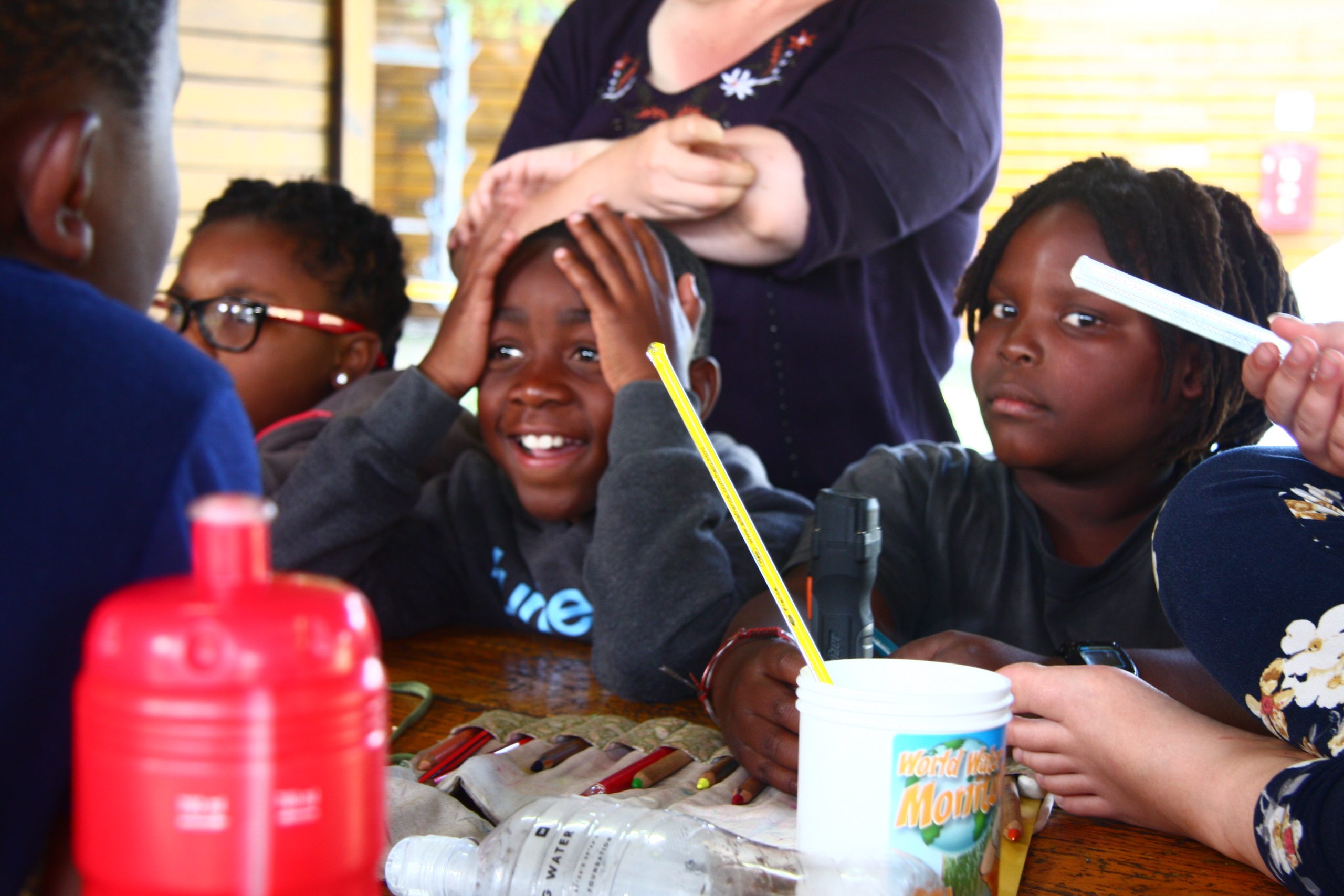Imagine. Imagine the smell of the Buchu bush as you softly crush its leaves between your fingers or the sound of the wind as it gently gusts past you while sitting and admiring the view from Pig’s Head. Picture the beautiful colours of the sunbird as it feeds from flowering Erica species or envisage hearing the eerie footsteps of the Bush Pig passing by your window and seeing the spectacular colours of the Knysna Turaco as it takes flight overhead.

Just imagine. Thinking of these experiences gives me goosebumps and I realise that it is not the magnitude of scientific literature I read over the years that instilled my love for our beautiful natural environment. Instead, my decision to pursue a career in the natural sciences stems from the passion imparted to me from an early age whilst being out and about, exploring our natural world.
When we think of education we often envisage structured lessons, the bombardment of information, the stress of performing and loads of tests and exams. However, with this traditional form of education, the idea of going out in our surroundings and truly experiencing the world around us rarely springs to mind.
Enter the concept of Environmental Education (EE). This type of learning entails discovering the environment around us, learning about the problems faced in protecting it, deepening one’s understanding of these issues, supplying the learners with a skillset for effective problem-solving and teaching them how to make responsible decisions where the environment is concerned. This type of learning should ideally be immersive, creating a true passion for our environment.

Why is this important and what sets EE apart from merely providing environmental information? Most importantly, it can instil an unquenchable and life-long passion for the environment which would lead learners to an innate need to protect their surroundings which they hold so dear. Therefore, by allowing individuals to experience the natural world for themselves, EE teaches learners an appreciation for the environment, instilling the desire and drive needed for people to want to tackle important environmental issues.

Moreover, EE strives to teach individuals how to think instead of telling them what to think. When this is done correctly, it teaches individuals to look at the world through a critical eye and to carefully weigh up all sides of an argument, thereby using informed problem-solving and decision-making skills to come to a suitable solution. Through this, learners of EE can become mindful of all ideas and different perspectives, allowing them to work with one another and gain a better understanding of people from other backgrounds. In this way, EE can transcend cultural differences, uplifting and bringing communities together in their love and need to protect the environment in which they live. The benefits of EE can extend to the standard school curriculum as well. Subjects such as maths, history, science, art and many more, can be delivered in an alternative, interesting and entertaining way to learners, which can result in an interdisciplinary way of learning, making sometimes difficult subject matter more approachable to these students.

It can also benefit students on a personal level. As they are encouraged to share their own experience of the natural world, it can introduce a level of confidence in them, teaching them that their opinion and thought processes for solving environmental problems are of great importance. This can result in the learner feeling empowered. Environmental education can also stimulate their curiosity, inspiring them to question and wonder about the world around them. In addition to being good for their mental health, EE can also hold many physical benefits as learners are taught to veer away from technology and from spending too much time indoors, supplying them with a reason to go outside and exercise.

As humans, we have an inherent need to protect our dwellings. By inspiring both young and old to extend this to our surrounding natural world, EE can root the need to protect this natural world deeply in our hearts and minds. It can create passion – a feeling that brings hope even in seemingly dire situations. Through EE we can learn to see our world from a new perspective. We can interpret scientific knowledge in unexpected ways. We can conserve the environment through innovative and critical thinking. We can feel a sense of empowerment and connection through just sitting and observing nature. We can make a true difference in our way of thinking. Just imagine.



